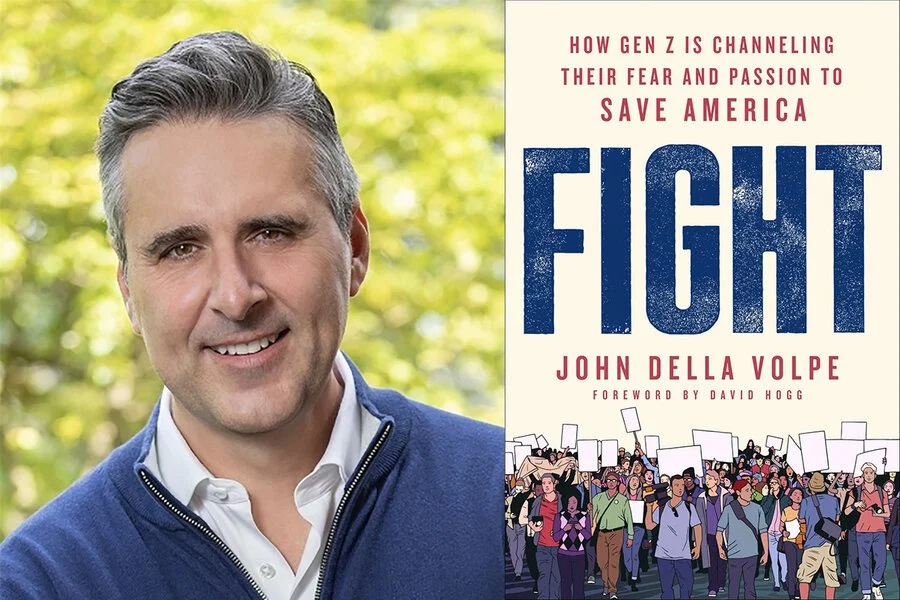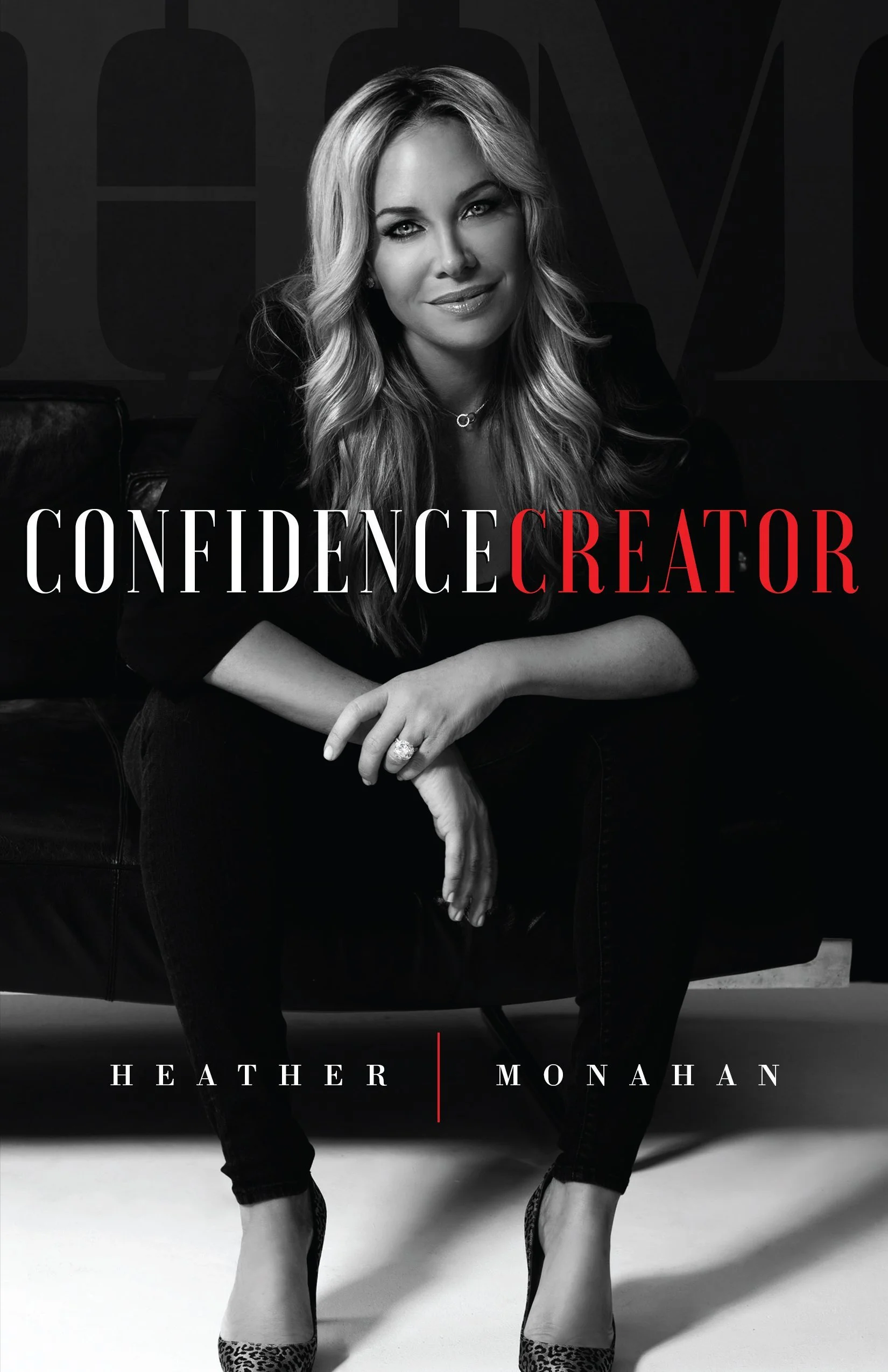Social Influencer Series | John DellaVolpe, CEO, Founder & Best Selling Author
One of the most interesting years of my life was spent in Harvard Square working with the team at SocialSphere - A public opinion strategy and consulting firm that managed an incredible roster of clients that ranged from POTUS to the Pope to our beloved Boston Red Sox. Led by John Della Volpe, SocialSphere leverages quantitative and qualitative data to shape the public narrative and help some of the world’s most inspiring brands and organizations tell their stories; win campaigns; develop new products and expand their audience and opportunities.
John is also the Director of Polling at Harvard University’s, Institute of Politics. As a pollster and strategic communications advisor (most recently for the Biden/Harris campaign), he is a world renown expert on both Gen Z and millennials where he says the sphere of politics is taking a dramatic shift. He is often considered a translator between the millennial and boomer generations, both of which he said experience conflict in trying to interpret and understand the views of the other.
His next chapter and title is that of Author, as his highly anticipated and acclaimed first book, Fight: How Gen Z Is Channeling Their Fear and Passion to Save America was released this January. I caught up with John recently for an interview. I wished it was over Dim Sum at the Dumpling House in Harvard Square, but like everything else these days we opted for virtual.
Here is a snapshot of what he had to say:
Fight is coming out of the gates hot with so much critical acclaim and anticipation - selected as one of the 10 Amazon Editor's Picks for Best Non-Fiction in January. What do you think is driving the interest?
Hope. It’s been such a challenging time between the pandemic, remote work, inflation, frigid temperatures (at least in the northeast) — people seem to be responding very well to the ending, which leaves the reader feeling hopeful that better days are ahead.
As a pollster, I think people were expecting a book filled with stats, charts, and graphs – but instead, business leaders, news junkies, parents, and academics are finding a very approachable book that is anchored in two decades of research – but focused on the powerful, often emotional experiences and stories of our children and co-workers.
I am also finding that so many of the things that we thought we knew about Gen Z are wrong… very, very wrong. I believe that while every generation has its share of angst and turmoil, no generation in the last 75 years has been confronted with more chaos more quickly than the 70 million young Americans we call “Zoomers”. Born around 9/11, millions lost their homes and many more lost their sense of security to the financial crisis. Lockdown drills and school shootings made once safe places uneasy. Then came an opioid epidemic, global warming, threats to our democracy, and Covid-19. All of this has been accelerated and amplified through social media. All of this landing on their laps before their 25th birthday – the time where neuroscience tells us the adult brain is fully developed.
But, rather than melting like snowflakes, these pressures from the outside world have made them harder – angrier, determined, and motivated. And while they’re anxious, they’ve also emerged as stronger, more resilient, and determined to change the world. I tell everyone who listens, underestimate them at your peril.
From your early days as a pollster for Bill Clinton to today - what are you seeing as the key themes that are shaping Gen-Z's view of the world?
The thing about generations is that unlike almost every other kind of group or clique, you don’t choose it – it chooses you. They don’t start or end on pre-destined dates. For Gen Z, which I define as young people born generally in the mid-1990s through the 2010s, I think there are five overarching events that have had an outsized influence on the values of this generation.
Occupy Wall Street. While Gen Z was too young to participate in the 2011 demonstrations, millennial-led discussions about inequality, America’s wealth gap, and modern capitalism became organizing principles for politics as Zoomers were coming of age.
Whether you praise him or wished he was removed from office, it is impossible to overestimate the influence Donald Trump has had on the personal and political development of Generation Z. Transformational leaders, for good and for evil, have that effect. They serve as orienting points or touchstones for generations of youths, allowing for ideas and movements to coalesce into a coherent vocabulary and goal.
Parkland and the March for Our Lives movement, specifically when David Hogg, Emma Gonzalez, and their classmates used traditional and social media to empower a generation to step up, take action, and fight to stop gun violence in America.
When 17-year-old Darnella Frazier used her iPhone to record the murder of George Floyd, especially while so many families were in Covid-19 lockdown, America was forced to have difficult and productive conversations about race that ultimately influenced public opinion.
Greta Thunberg’s climate strike was inspired by the Parkland students and helped elevate concerns about climate to a top personal and political issue for an overwhelming number of Zoomers.
What role does social media play in all of this?
It’s complicated. Social media was the accelerant that brought the March for Our Lives movement to life. Within hours, Emma Gonzalez’s Twitter feed – and her influence – went from zero to more than the NRA. Without social media, we might not have known George Floyd’s name – and Gen Z would not be connected with like-minded people around the world. But, because of mis- and disinformation, social media has also led to deep divisions in our society and negatively impacted the mental health and well-being of millions of vulnerable young people.
How do you see Gen Z influencing the future of politics in this country? What does the future look like in their eyes?
Despite not recognizing their country at peace, Gen Z has outvoted every other generation alive today when they were young. Zoomers broke turnout records in the 2018 and 2020 elections – and without double-digit margins among young voters, Joe Biden would have lost Arizona, Michigan, Pennsylvania, and Wisconsin. Biden lost the vote of those over 45 in those states – he owes his presidency in large measure to young people. When Gen Z is in charge, they will influence how we work (ensuring companies have a social purpose), how we eat (will be the first plant-forward generation and lead an agricultural renaissance), and how we live (success will be measured by the bonds we make, not the stuff we buy).
How do you make time to write a book? Director of Polling at the Harvard IOP; Founder and CEO of SocialSphere; Dad, Husband. What is the secret to actually getting Fight done?
It took three years from the time I began pitching editors to publication. The best writing happened in the last three to four months when most days I would force myself out of bed before 5 AM, put on noise-canceling headphones, research, and write until around Noon – at which point, I would ride the Peleton and tend to the rest of my work. The fact that I didn’t travel, or commute to work for more than a year was huge – and it goes without saying that none of this would have been possible without the incredible support, understanding, and sacrifice by Linda and my three kids – as well as Jonathan, and the team at SocialSphere.
You've had an incredibly successful career in politics. You launched a successful business. Now you can add "best-selling author" to that resume. What advice would you give to someone who is dreaming of writing and publishing their first book?
Three things: 1) Be comfortable and confident in your own voice. Don’t tell anyone’s story other than your own; 2) Find a trusted friend, preferably someone with experience, who can serve as a muse, coach, editor, sounding board, or critic throughout (I was fortunate to have two); 3) Seize the moment. I was encouraged to write a book for more than a decade, but it was not until I was able to recognize that the confluence of public events (2018/2020 elections) aligned with my personal and professional space that I was confident in my ability to tell the story and do the (sometimes physically taxing) work. And bonus, #4 — when you think you’re done, you’re not. I am not sure I will ever be done with this book.
Speed Round (5 words or less):
Inspirational Book? King of the World: Muhammad Ali and the Rise of an American Hero by David Remnick
What are you reading right now? Leave the Gun, Take the Cannoli: The Epic Story of the Making of ‘The Godfather’ by Mark Seal
Best resource for an aspiring writer? WordHippo
Celebratory Cocktail? Negroni
Inspirational Hashtag? #art
About the interviewer:
Mark Keaney is a Husband, Dad, Coach, Mentor and Leader. With over 20 years of experience in the media industry and a wild ride in the world of tech start-up & social - Mark is helping brands deliver world class CX at Khoros, where he is the Vice President of Sales for North America. His mantra is - Brand Globally. Market Locally.
email: markkeaney8@gmail.com or twitter: @markkeaney2pt0






